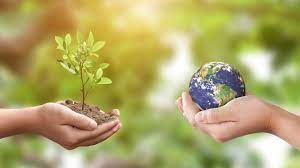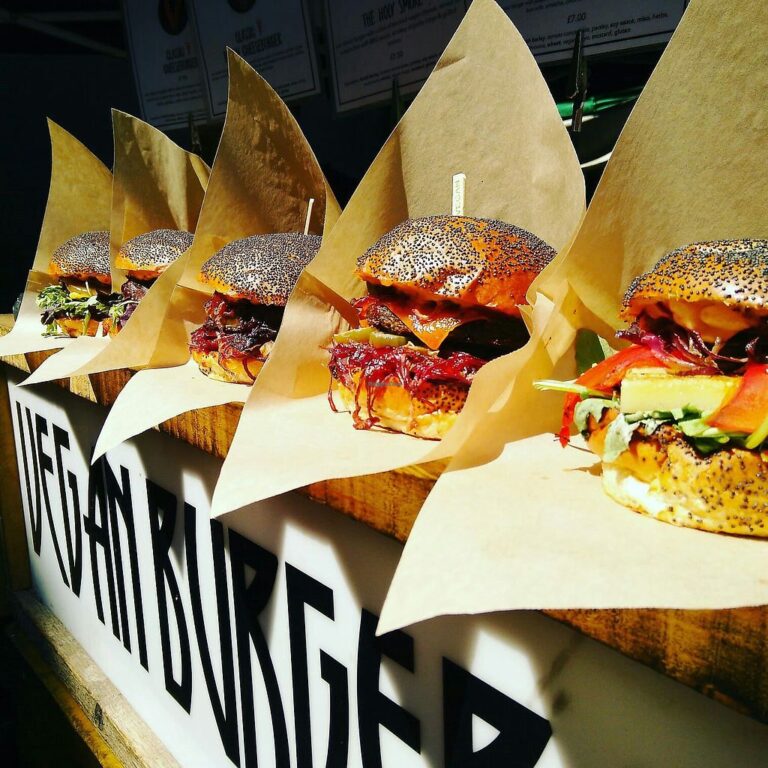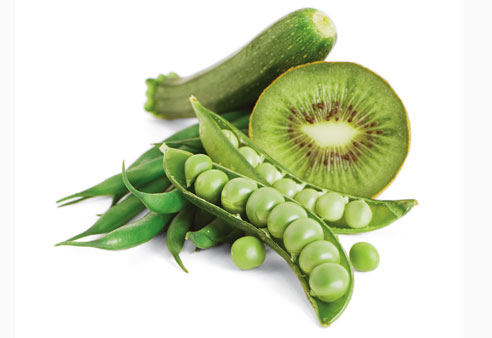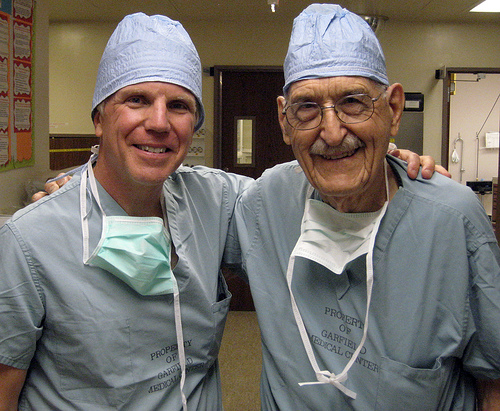The Climate Crisis and Veganism: A Vital Path to Planet Healing
In today’s world, the urgent problem of the climate crisis needs us to pay attention right away and work together.
When we look at all the things that are causing greenhouse gases, one big thing is causing a lot: raising animals around the world. The United Nations’ Food and Agriculture Organization found that a huge 14.5 percent of all the greenhouse gases come from raising animals. This discovery shows how important it is to find ways to take care of this problem, and something that can help a lot is choosing to be vegan.
Revealing the Guilty Party: Emissions from Animals
When we look more closely at the numbers, we see that three main gases – methane, nitrous oxide, and carbon dioxide – are what come out from animals and cause problems. Methane is the biggest troublemaker, making up about 44 percent of all the gases from animals. Methane is really strong, especially when we think about it over 20 years. Surprisingly, during this time, methane is 84-86 times worse than carbon dioxide (CO2). This surprising fact makes us realize we need to do something about it and find ways to solve this issue.
Methane: Something We Can Deal With
The good thing about methane emissions is that we can control them. Unlike carbon dioxide that stays in the air for a very long time, methane doesn’t stick around for too long. This makes methane a good candidate for us to focus on fixing. The important part is understanding where methane comes from and how we can manage it.
Cutting Down on Methane: A Way to Help the Climate
Most of the methane we release comes from animals we raise on farms. That’s why we’re putting a lot of effort into dealing with this issue. Animals like cows and sheep make methane when they burp – it’s a natural thing. If we reduce the number of these animals, we can lower the amount of methane they release. This would help cool down the planet quickly.
Protecting the Delicate Balance: Critical Points and Ice Caps
The situation is very serious. Our planet’s fragile balance relies on the health of our ice caps and how stable they are. These ice caps are like points of no return – if they melt too much, it could cause really bad temperature increases. When these ice caps melt, it could set off a chain reaction that leads to the worst effects of climate change. We can’t stress enough how urgent this is.
Cutting Down Methane: Our Hope for the Future
In this tough situation, reducing methane gives us some hope. If we quickly work on lowering methane emissions, we have a chance to do something important. This chance helps us build better ways to take care of carbon dioxide and get ready to fight against it. The connection between reducing methane and carbon dioxide becomes clear. Even though we’ll need to cut down on carbon dioxide in the long run, focusing on methane now can really help us.
Vegan Lifestyle: A Force for Change
As we work to make our planet cooler and more sustainable, choosing a vegan lifestyle becomes really important. Going vegan has many good effects, not just on our health but also on the environment worldwide. When we eat plant-based foods instead of animal products, we directly help reduce the number of animals we raise. This reduction means we make less methane, which is a big help to solve a big problem.
We really need to take quick and strong action because of the climate crisis
The clear connection between animals and greenhouse gases shows how vital it is to eat in ways that are good for the Earth. Lowering methane emissions, which we can handle and has a big impact, is a real way to cool down our planet and keep it in balance. As we stand at a point where we have to be responsible for the environment, choosing veganism gives us hope. It leads us toward a future where our planet stays healthy. We can make the world better through our choices, and deciding to be vegan is a powerful step toward a better future.
Revolutionizing How We Save Water: Urging for a Sustainable Planet
Water, the most important thing for life, is becoming scarce and causing conflicts between countries. What we urgently need is a change in how we manage land. This change should focus not only on making money but also on taking care of the whole planet. To make this change, we have to rethink how we do animal farming, which uses a lot of our precious freshwater. In this investigation, we look into how we use water, how it affects the environment, and how industries sometimes try to trick us. We want to find a way to make our planet healthy again.
Revealing the Thirsty Truth: Animals and Using Water
Animal farming needs a huge amount of water, and this is causing problems for our environment. Surprisingly, animal farming uses more freshwater than anything else in the world. The main issue is that it takes a lot of water to make protein from plants. This process often happens in dry areas where it’s hard to grow crops. The protein made with so much water ends up being fed to animals like cows, chickens, and pigs. Then these animals are turned into food for us. This cycle shows that we’re not using water efficiently.
A Better Way to Use Water: Eating Plants Directly
A big change in how we use water comes when we focus on a more efficient way – growing plants for people to eat directly. Instead of using water to raise animals for food, we use it to grow plants that we can eat. This way, we use water better and don’t waste it. Also, we can stop cutting down forests, which happens when farms expand. These forests are important for cleaning water, and we’ve been sacrificing them for more farmland. If we start growing plants for food, we can help save forests and use water smarter.
Problem with Pollution: Animals and Dirty Water
The problems caused by animal farming go beyond just using a lot of water – they also affect how clean our water is. We’re in trouble because of the pollution caused by this industry. When we look at all the things that pollute water, animal farming is the worst. The waste from animals is even more than what humans make. For example, dairy cows make 14 times more waste than an adult human. This bad fact shows that we really need to change how we farm.
Loss of Protection: Animals, Nature, and Pollution
The problems from animal farming go beyond using a lot of water – they also affect the quality of our water. We’re in trouble because this industry makes pollution. When we talk about things that make water dirty, animal farming is the worst. The waste from animals is even more than what humans make. For example, dairy cows make 14 times more waste than an adult human. This bad fact shows that we really need to change how we farm.
Seeing Through Lies: Tricky Advertising and Industry Control
Some big companies try to trick us when it comes to being environmentally friendly. They pretend to care about the environment, but they’re actually doing bad things. This is called greenwashing. It happens in many industries, especially in oil and gas, meat, and dairy. Sadly, there aren’t strong rules to stop them from doing this. They even try to influence what we learn in school and what we’re told to eat. They have a lot of power and can change the rules in their favor.
Leading the Way to a Better Future: What We Should Do
If we want a future where the planet is healthy, we all need to work together and make smart choices. We can change things by choosing what we eat and making changes in our communities. Eating more plant-based foods can help us use water better, stop pollution, and protect nature. We also need to make sure that big companies are responsible for what they do to the environment. We should have strong rules to stop them from tricking us and make sure they support plant-based options. This way, we can make the planet better for everyone.
In the big picture of life, water is what connects everything. It’s up to us to take care of it and make a future where our planet is great. The journey to make the planet better is not easy, but it’s also full of chances to do good things. By changing the way we do things, seeing through lies, and making thoughtful choices, we’re on a big journey to make the world better and keep water safe for everyone.
Farmers: Guardians of Sustainability in a Complex System
In the intricate world of modern farming, it’s important to understand that farmers, often unfairly blamed, aren’t the main reason for harming the environment. The story we often hear is a bit twisted – it doesn’t show the whole truth. Farmers deal with rules and directions set by big companies that don’t always help the planet. In this exploration, we look into the connection between farmers and these rules, the rise of a better farming approach called regenerative farming, and why moving towards plant-based eating can make a huge difference.
Finding Their Way: Farmers and What They’re Told to Do
Big industries have a lot of power and can control how farming works. They make rules that farmers have to follow, but these rules often help these industries make more money, not protect the Earth. Farmers try to follow these rules because they want to make a living, but the problem is that these rules don’t always help the environment. Even though these rules say they protect nature, they really just help businesses. This makes things hard for farmers who care about the Earth.
Playing Their Part: Farmers in a Bigger System
Living in a world where animals are used for human needs, farmers are part of a system where they have to follow what other people want. Many farmers don’t own everything they need to farm, so they’re not always in control. They might not know everything that happens to animals before they become food – like what happens in a slaughterhouse. Often, they’re in debt and have to do what big companies say to make money, even if it’s not good for them or the environment. To really change things, we need to change the whole system, not just blame farmers.
In the end, farmers play an important role in making sure farming is sustainable. But the whole system needs to change to really make things better for them and for the Earth.
Exploring Regenerative Farming: A New Way of Thinking
When we talk about “regenerative farming,” we’re talking about an idea that could really help the Earth. It’s about bringing back balance to nature. This idea goes back to ancient knowledge about farming from Indigenous cultures, but now it’s being used in a more modern way. It’s not just about making animal farming better – it could change how we grow plant-based food too. The main idea is to create a cycle where everything helps each other. This means no harmful things like chemicals or imported feed. The goal is to make farming work together with the environment, which could help make nature healthier.
Challenges for Regenerative Farming
But here’s the challenge: Can we really use regenerative farming in today’s big farms? The idea sounds good, but when we think about how much land and resources it needs, it’s not so easy. There’s also the problem of pollution from animals on big farms. The big question is whether regenerative farming can fit in with how things are done on a large scale. Many farmers also can’t afford to try this new way because it’s not always practical or profitable.
A Better Choice: Eating Plant-Based
In this complicated situation, there’s a simple solution – start eating more plant-based foods. This change can make a big difference. By eating mostly plants, we use fewer resources and make less pollution. It’s a way to live in harmony with the environment. It’s not just a personal choice – it can change what society wants and what the world needs.
To sum up, farming is a complex thing with many sides.
Farmers work hard to give us food, but they also have to deal with rules from big companies. Regenerative farming could help, but it’s not easy to use on a big scale. Still, we can all make a change by choosing to eat more plant-based foods. This choice can make the world better for farmers, nature, and everyone. It’s time to think about the Earth and make choices that help it stay healthy.
Feeding the World Sustainably: Changing to Plant-Based Food
Even though we have a lot of food in the world, we still waste a huge amount. We make more food than we actually need, and a lot of it gets thrown away. A solution could be to focus more on plant-based foods. They’re efficient and can help reduce waste. But changing from animal farming to plant farming isn’t simple. We have to think about it carefully to make it work.
Changing How We Farm: Less Animals, More Plants
It might sound like a great idea to switch from animal products to plant-based ones, but there are challenges. If we do it suddenly, we could make too much food, and that would just go to waste. The real solution is not just changing what we make, but also changing how we make it. We need to rethink how we farm and make it more sustainable and fair.
Seeing Through False Ideas: The Dairy Industry’s Problems
The dairy industry is an example of how we don’t always do things right. Advertising tells us that drinking milk is normal, but it hides a lot of problems. Taking milk from animals, like cows, isn’t always fair or ethical. It’s more about making money than doing what’s right.
Focusing on What Matters: Making Sure Everyone Has Enough Food
Right now, how we make food puts money before making sure everyone has enough to eat. The system we have now mostly helps rich people, which is not fair. We need to change how we think about food and make sure everyone can eat well.
Why Plant-Based is Good: More Food with Less Impact
Plant-based foods are not only good for our health, but they’re also better for the environment. They need less land, water, and energy. Choosing to eat more plant-based foods can also help us use less land for farming animals. This change isn’t just about eating – it can help protect nature and fight climate change too.
Creating Change: People Power for a Better World
Thinking that what one person does doesn’t matter in the big picture is wrong. Just like how one vote can make a difference, the choices each person makes can have a big impact. Ignoring the power of what each person does is an excuse to keep doing things that hurt the world. Changing things means understanding that each person has the power to make things better.
Knowing What Matters: Understanding Where Our Food Comes From
To make a real change, we need to know where our food comes from. This is especially important if we want to move towards a future where we mostly eat plant-based foods. We have to learn about our food and talk to others about it too. When we know what’s happening, we can make better choices for a better world.
Protecting Our Home: Treating the Environment Right
A big part of this change is understanding that we all have to take care of the Earth. Our planet is where we live, and we need to treat it well. We should stop using up resources and hurting nature. Instead, we should work together to make the Earth healthier. We need to see nature as our home, not just a place to get things from.
In the end, making sure everyone has enough food and that the Earth stays healthy is a big job. It means changing how we do things, making sure things are fair, and picking foods that are good for us and the planet. Moving towards a future where we mostly eat plant-based foods is a way we can show we care about nature and the future. As we make these changes, we’re weaving a story of hope, kindness, and taking care of our world.





